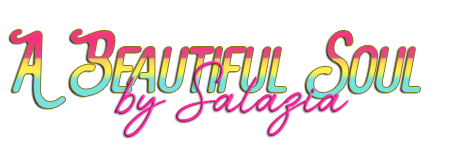Welcome to another article of A Beautiful Soul. In this column, we will be sharing coming out stories and what it's like being in the LGBTQ+ community. Maybe it will help you in your own journey.
Today, I would like to share someone's story who has asked to remain anonymous.
I was an adult before I knew I was different. Don't we all know we aren't the "normal" stereotype at some point? Even if it was late, I'm glad I realized and found myself. I was raised by traditional cis-parents. My mother was an ally and my step-father basically followed whatever her view was to avoid conflict in the household. Looking back, that honestly wasn't healthy. His views and little things he said were confusing. Now, I understand why.
Before I go further, I will say I am a bi-demisexual, AFAB person who loves drag. I've tried for the last year to approach the "scene", but it has been very hard. While some welcome the celebration of redefined postmodern feminism, others haven't been so kind. Many have thought I should leave drag to the real queens, that all I'm doing is taking away something that means so much to the gay culture.
I have looked up to people like Dahlila Jasmine, Patty O'Furniture, Trashina Cann, and Coca Dietetica. Ladies who should inspire anyone you can achieve your goals. I feel most comfortable in myself with something once said by Connie Champagne, "I feel like a drag queen trapped in a woman's body." That really hits it home for me. If these ladies can be fired from a show and go back hitting the pavement the next day to be who they want to be, why can't I?
Even though I've had a hard time being accepted, I will not let it ruin my dreams of one day being a Drag Queen. I aspire to even make it to one of the Faux Queen Pageants in San Francisco. If I keep a positive mindset and don't let each door slammed shut in my face get me down, I hope to share with everyone I got my dream!
Just remember this, no matter who you are or what your dreams are, let your gender identity expression flag fly high and proudly. No one should tell you that you can't be who you are. It's something I look in the mirror and tell myself each and every day. It does help a tiny bit.
Thank you so much for sharing your story with us today. I'm sure your journey has been a difficult one as many of us have had a hard road to get where we are. May we all remember her words of hope for a beautiful future for us all. Until next time my beautiful souls, be safe, be yourself, and keep your head held high.

